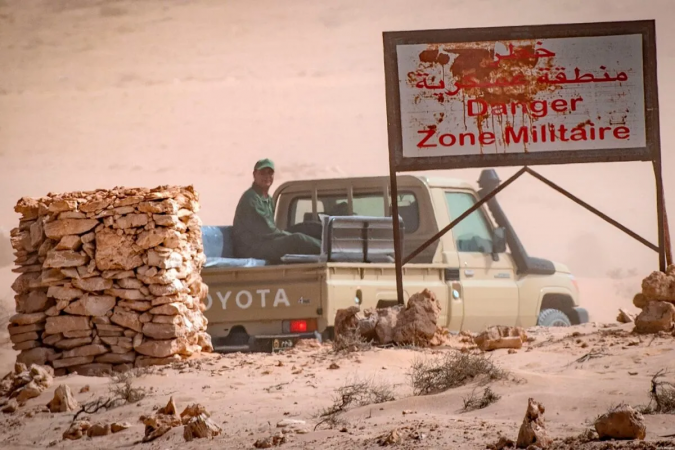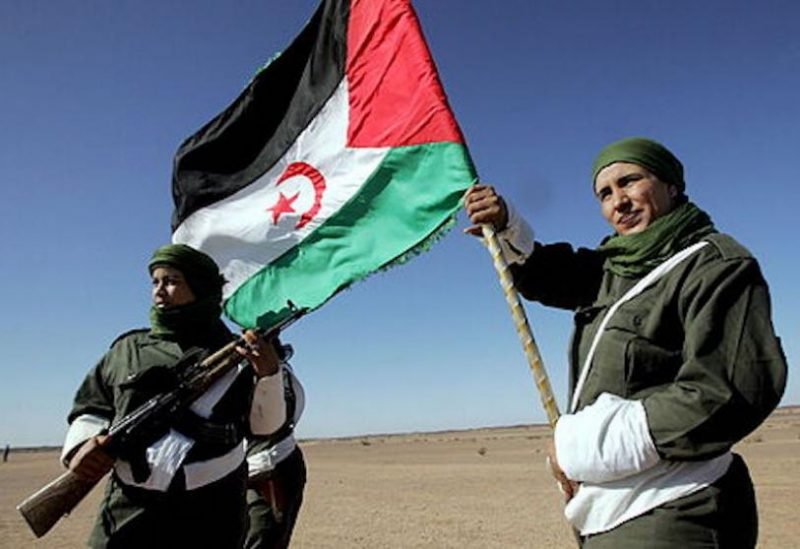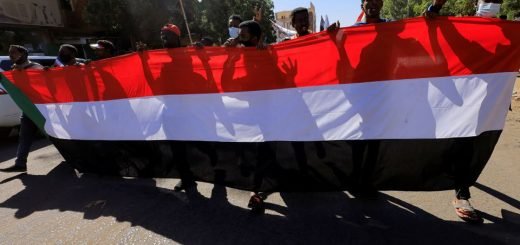Algeria- Morocco dispute over Western Sahara

Background of Western Sahara
Western Sahara has always been a strategic point in contemporary geopolitics, which determines the power balance between Morocco, Algeria even the future of Europe; previously a Spanish colony, since 1958. In the year 1975 Spain unilaterally withdrew from the colony as per the Madrid Accords, subsequently, Moroccan and Mauritanian troops, invaded and occupied the territory. Morocco and Mauritius have breached the 1975 International Court of Justice Declaration and the Madrid Accords weren’t recognised by the United Nations. Western Sahara’s legal status is that of a non-self-governing territory awaiting decolonisation; Morocco’s intrusion into the Western Saharan territory created unrest amongst the civilians, gave rise to the Polisario Front in 1973, initiated against Spanish control, and later on, recognised by the UN as the licit representative of the Saharawi. In 1979, a peace treaty was signed between the Polisario Front and Mauritania, the latter withdrew its forces from the occupied Western Saharan territory and recognised the Saharawi Arab Democratic Republic (SADR) as an independent state. The Mauritian portion was later annexed by Moroccan forces through heavily-armed patrolling along a 2700km berm, one of the largest military infrastructure projects. Currently, around 80% of the Western Saharan territory is controlled by Morocco and 20% of Western Sahara is controlled by the Polisario Front. The dispute in the area has become a potential impediment to the attempt of unifying the Maghreb region. 44 years of Moroccan occupation of Western Sahara follows the norms of Spanish colonial rule and the exploitation of natural resources. The brewing tension over the territory is also escalating the strife and deep-rooted rivalry between Algeria and Morocco, countries with a history of strained relations over competition for regional leadership. The friction between the two powers has deteriorated diplomatic relations, and Algeria has cut off its consular ties with Morocco.
Resources in Westerns Sahara
Western Sahara is rich with natural resources which include the largest phosphate reserves, access to rich fishing waters, approximately 690-mile shore with vast offshore oil and gas reserves. The natural resources of the territory have been eyed by European companies such as Siemens and Enel. The “systematic exploitation” of resources is one seminal reason for the Moroccan occupation of the territory, with the authority Morocco is developing its internal economy, acquiring political positions of the states and financing lobbyists in the European Union and the United States of America. The political interest in Western Sahara is due to its geostrategic position in the Atlantic Ocean and acts as a rearguard of the Canary Archipelago. The factors that act as an accretion to the economic value of Western Sahara are the territory’s propinquity to the old Caravan routes and the rich fishing bank that runs along the coast, Phosphate resources are geopolitically more concentrated than oil reserves. From 2014 to 2018 Western Saharan waters provided 94% of the catches by the EU fishing fleet operating with Moroccan permits. In 2002 UN Legal counsel Hans Corell stated, by international law “ one cannot exploit the natural resources of an occupied country without the express consent of the indigenous population. To do so is plunder.” Western Sahara is the gateway of connection for Morocco with explicit implications for Morocco’s geopolitical and geo-economic with the EU and Sub-Saharan Africa. European companies in France and Spain also have vested interests in taking advantage of the natural resources extant in the region.

European participation in the dispute
The altercation between Morocco and the Polisario Front has escalated over time, especially after the support extended by Spain for Moroccan authority over the Western Saharan region and recognising the. Moroccan-Algerian war is perpetually in the territory since the countries were actively involved in the 1963 border war. Algeria has given paltry support to Polisario Front since its inception in 1973 and has been supporting the rights of the Saharawi people. Matters have become worse after the violent clashes with the Moroccan military in Guerguerat, in 2020. The position of the European Union in matters of the dispute has always been strategic and economic. European Union’s trade relationship with Western Sahara has traditionally been limited but has considerable influence over the conflicting parties since Morocco has heavy economic dependence on European Union. Conflict of interests pertains among the European countries, France and Spain have taken pro-Morocco stances whereas the northern European countries sympathise with the Saharawi people. Germany’s firms stand on the issue and the nation’s resolute to adhere to the conduct as proposed by the UN using international law and soft power has caused a diplomatic spat in the country’s relations with Morocco and resulted in the cancellation of consular ties between Rabat and Berlin. France’s colonial vision and aligning trade interests with Morocco are not recognising the autonomy of the Western Saharan region. European Union has distanced itself from initiating peace talks, though it is directly implicated in the pertaining conflict, so is the UN, delaying in conducting the referendum – UN Mission for the referendum in Western Sahara due to the conflict and Morocco’s influence over the European countries. The passive response from the UN and the European Union is prolonging the squabble in the Western Saharan region.
Future of Western Sahara and regional balance
Western Sahara remains the last colony in Africa that needs to be decolonised and the power dynamics in the region will determine the future and stability of the European Union, the region is tactical in seizing hegemony over the Maghreb region for both Algeria and Morocco. The international negligence toward the predicament in the region is aggravating the situation in the strategic region. A possible solution for European Union to bring the situation under control is to align the political and trade relations in favour of both the parties but European powers such as France and Spain have offered diplomatic protection to Morocco and are pro-Moroccan in approach. Considering the leverage Morocco has over the EU, the possibility of recognising Moroccan autonomy over Western Sahara is a feasible choice for geographic, political and geostrategic reasons. Morocco is a dynamic country with a strong presence in trade relations with Europe and being a key regional actor, can bring about potent and effective solutions to the prevalent conflict. By gaining control over the Western Saharan region, Morocco will transition to become a key geopolitical player in the future of North African politics and economy. European Union must take a firm resolute and come to a favourable conclusion as the security of Africa has can produce serious repercussions on European security and sustainability.
References
- https://www.eupoliticalreport.eu/the-future-of-western-sahara/
- https://moderndiplomacy.eu/2019/11/20/the-geopolitics-of-natural-resources-of-western-sahara/
- https://www.middleeastmonitor.com/20210526-spain-and-the-issue-of-western-sahara/
- https://www.tandfonline.com/doi/full/10.1080/13629387.2021.1917120
- https://ecfr.eu/wp-content/uploads/Free-to-choose-A-new-plan-for-peace-in-Western-Sahara.pdf
- https://atalayar.com/en/blog/solution-western-sahara-problem-lies-europe
- https://www.aljazeera.com/news/2022/3/19/algeria-recalls-spain-envoy-over-western-sahara-policy-change


















